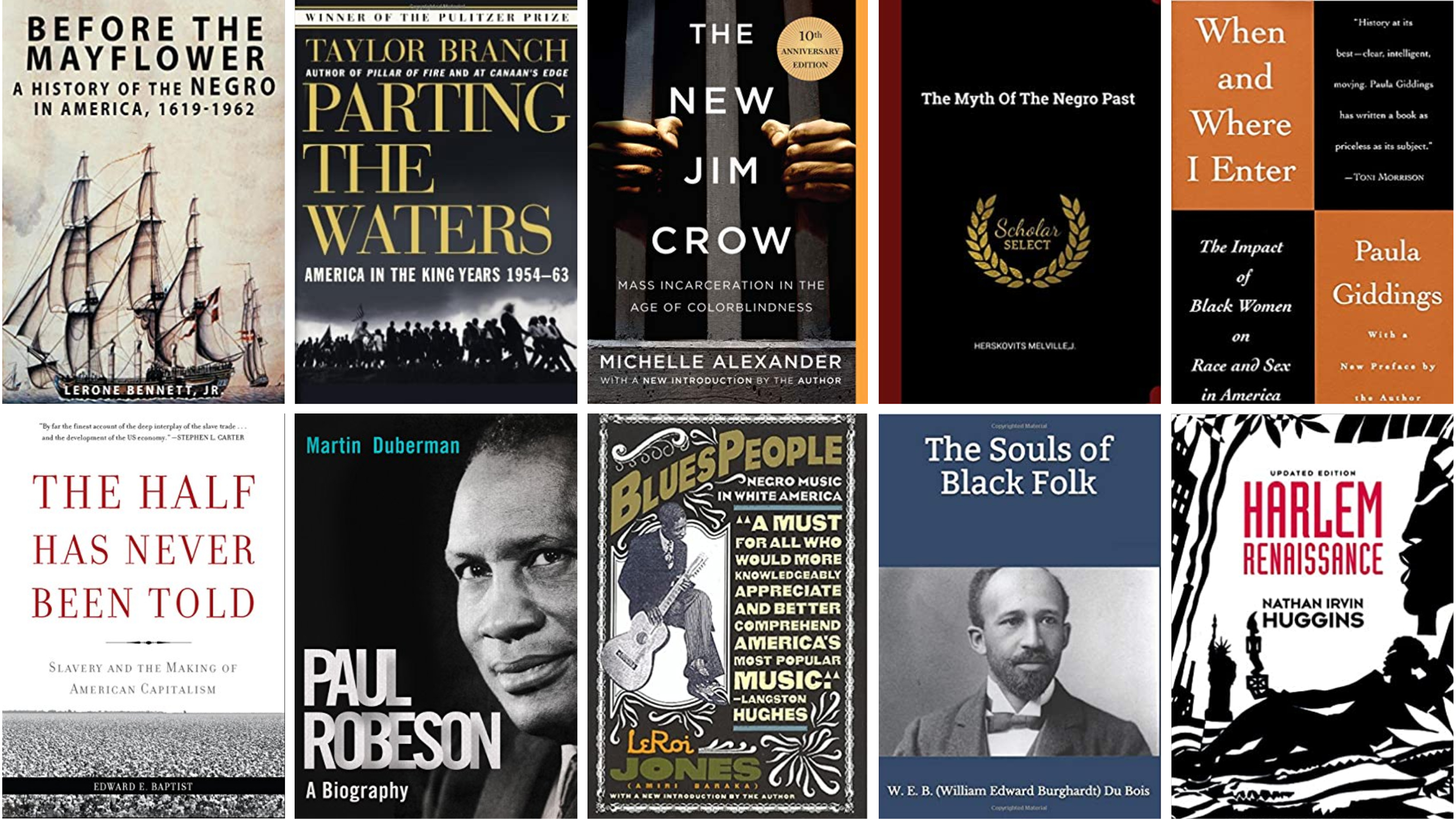Authors:
Historic Era: Era 10: Contemporary United States (1968 to the present)
Historic Theme:
Subject:
July/August 2020 | Volume 65, Issue 4


Authors:
Historic Era: Era 10: Contemporary United States (1968 to the present)
Historic Theme:
Subject:
July/August 2020 | Volume 65, Issue 4
Editor's Note: Amid nationwide protests over racial injustice and a resurgent Black Lives Matter movement, understanding the experience of African Americans in the U.S. is more relevant than ever. So we asked Gerald Early, Merle Kling Professor of Modern Letters in the African and African American Studies Department at Washington University in St. Louis, to recommend his favorite books on the history of black America. What follows is a definitive collection of U.S. black scholarship, from one of the subject's preeminent experts.

African-Americans have experienced a cultural paradox, or a contradiction. For many years, until World War II, they were largely excluded from the official history of the United States. Not in the sense that they went unmentioned; after all, one can hardly conceive a history of the United States that does not deal with slavery, abolitionism, the Civil War, and Reconstruction. But it was certainly possible to talk about blacks largely as objects, not agents, as primitives, as an unfortunate population whose presence was largely an annoyance, a misfortune, or a tragedy. Blacks were usually presented as a people without a history in Africa, and they were presented as contributing nothing historically important to American life. Indeed, Western slavery had brought blacks into the loop of civilization and so was something of a perverse gift.
This neglect, this denial, however, did not stop blacks from being an object of fascination for whites, with stage minstrelsy, with books and commentaries about race and the meaning of racial characteristics and traits, with ritualized lynching and acts of terrorism, with laws against miscegenation and socializing between the races, and against blacks exerting any sort of political presence in the land. Their being a people without a history made them, in the eyes of whites, a people unworthy of respect, which whites reinforced by making them a people without power, but they were not, by any means, a people devoid of interest. Indeed, they had a deviant allure, largely because what whites saw in black people was what they feared to see in themselves. As Ralph Ellison put it, “The white American has charged the Negro American with being without past or tradition (something which strikes the white man with a nameless horror), just as he himself has been so charged by European and American critics with a nostalgia for the stability once typical of European cultures.…”
It was the abolitionist movement in the United States that generated the first histories of blacks. One of the earliest was the white abolitionist and children’s writer Lydia Maria Child’s An Appeal in Favor of That Class of Americans Called Africans, first published in 1833, tracing the history of slavery, the general status of the condition of blacks in the United States, their past in Africa, and their contributions to world civilization. It is largely a moral and political defense of the slaves’ right to be free based in good measure on an assessment of their history. So controversial was the subject at the